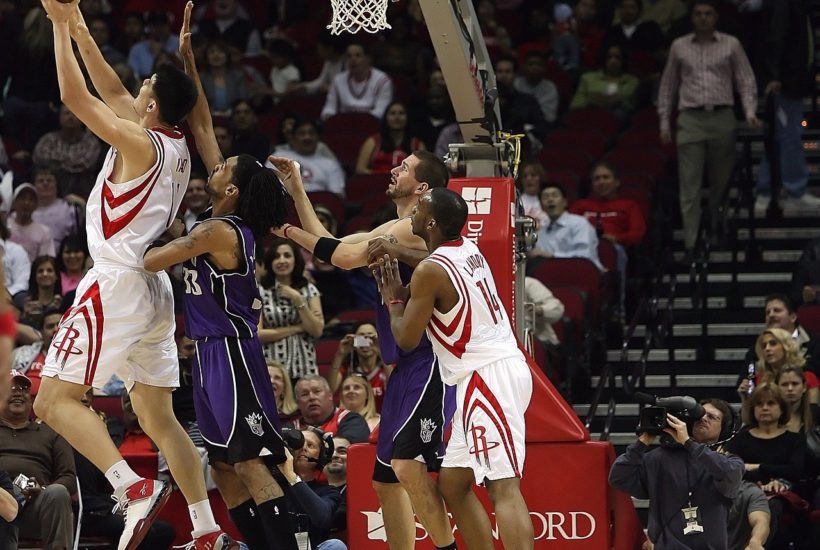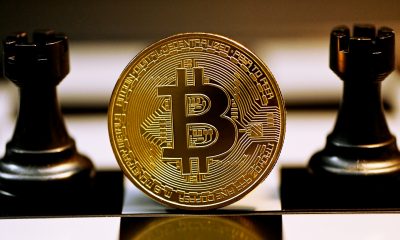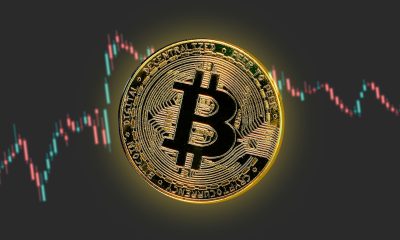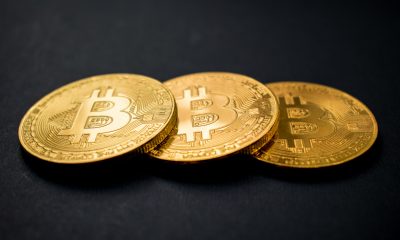Crypto
NBA players will be able to choose whether to be paid in cryptocurrencies
NBA players will now have the possibility to take their salaries in cryptocurrencies. After the ok for the purchase of tickets and merchandising, the Sacramento Kings will be the first franchise to pay players and employees with digital currency, while the Dallas Mavericks bet on dogecoin. Unlike bitcoins which are finite in number, dogecoins are unlimited.

The rise of cryptocurrencies is unstoppable and, countries studying laws to outlaw them, more and more sectors, companies and personalities are adopting virtual currencies. The latest step, in some ways historic, is the possibility for sports athletes to get paid in bitcoin part or the entire annual salary.
The news comes from the NBA, with the most avant-garde franchise ever, the Sacramento Kings, ready to offer such an opportunity to all employees and players of the company. But if bitcoins are now everywhere, there are other digital currencies on the ramp-up in the spread of areas of use, starting with dogecoins.
Read more on the subject and find the latest business headlines in the world with the Born2Invest mobile app.
Sacramento Kings, a franchise at the forefront of the crypto world
The trust of the most popular American sports league in the crypto world has its roots in 2014, when the same franchise of the Californian capital was the first to accept bitcoins for the purchase of tickets and merchandising (including hot dogs inside the game arena), thanks to a partnership with BitPay, the leading provider of payment services in bitcoin. And again the Kings in 2018 devised a charitable program to mine Ethereum, then donated to support tech education initiatives, while still they last year launched a blockchain-based application to access auctions raffling off sports cult items. Now comes the next step, with owner Vivek Ranadivé anticipating the formal act during a chat on Clubhouse: “I will officially announce it in the coming days and every member of our organization will have the opportunity to receive their salary in bitcoin.”
A way to increase revenue (if it goes well)
Pending the details, at the moment it is uncertain how salaries will be paid, although it is likely that those who will embark on the new course will be able to choose the percentage paid in virtual currency. There are also doubts on how this last part of the salary will be paid, that is if it will be in dollars and only then converted into bitcoin, or directly in cryptocurrency after the same franchise has purchased bitcoin on the market. A move, this, that would lead to variable salary, with the growth or reduction of the same linked to the performance of bitcoins. A scenario that Russell Okung, star of the Carolina Panthers in the NFL and a great supporter of cryptocurrencies (“life, liberty #bitcoin” reads the bio of his Twitter account), has experienced first hand during the last season. Through the startup Strike he has converted half of his annual salary (13 million dollars) into bitcoin, thus increasing the figure to over 20 million dollars by virtue of the surge in the value of the most famous digital currency.
The difference between bitcoin and dogecoin
Staying with the NBA, there is another virtual currency that is gaining space and that is dogecoin, which differs in some ways from bitcoins. Both are generated via mining and exchange without the need for a central authority, but unlike bitcoins which are finite in number, dogecoins are unlimited. Conceived in late 2013 by computer programmers Billy Markus and Jackson Palmer (one employed at IBM and the other at Adobe at the time), the Dogecoin system is the result of a game and is referenced by a meme featuring a shiba inu dog, a Japanese breed (and after all, doge in American slang is a mispronunciation of dog).
Used for several years as a reward for favors and to promote initiatives (including fundraising to support a NASCAR driver and another to support the Jamaican bobsleigh team at the Winter Olympics in Sochi, Russia), between the end of 2020 and the beginning of this year it has taken off thanks to the enthusiastic tweets of Elon Musk who, in addition to accepting bitcoin for the purchase of a Tesla, with the usual attitude that mixes marketing and fun has promoted the knowledge on a large scale.
Marketing moves and more
Among the supporters of dogecoins there is also Mark Cuban, who in 1998 bet on Audionet, transformed into Broadcast.com and sold the following year to Yahoo! for $5.7 billion. Owner since 2000 of the Dallas Mavericks (in which Italian basketball player Nicolò Melli plays), already in 2019 Cuban allowed fans to make purchases on the team’s website via bitcoin, now adding dogecoins and announcing in recent days that in less than two years there have been over 20,000 transactions made with the digital currency, whose value is around (at the time of writing) 47,503 euros, while dogecoins travel around 5 cents.
Asked about the reason of his choice, Cuban has not found valid reasons, explaining that “sometimes in the business world you have to make choices able to generate a media prominence”, almost to underline the intent spoiled by marketing and by the personal possibility to bet on an element characterized by the high volatility that in the last years, especially in the United States, has become a mania for some and a fashion for others. Bolling the phenomenon only in this way, however, would be a mistake and to prove it are the facts, such as the 19-year contract of 135 million dollars signed by the Miami Heat with FTX, a platform for the exchange of cryptocurrencies that will replace American Airlines as sponsor and name of the arena of the game of the Florida franchise.
__
(Featured image by KeithJJ via Pixabay)
DISCLAIMER: This article was written by a third party contributor and does not reflect the opinion of Born2Invest, its management, staff or its associates. Please review our disclaimer for more information.
This article may include forward-looking statements. These forward-looking statements generally are identified by the words “believe,” “project,” “estimate,” “become,” “plan,” “will,” and similar expressions. These forward-looking statements involve known and unknown risks as well as uncertainties, including those discussed in the following cautionary statements and elsewhere in this article and on this site. Although the Company may believe that its expectations are based on reasonable assumptions, the actual results that the Company may achieve may differ materially from any forward-looking statements, which reflect the opinions of the management of the Company only as of the date hereof. Additionally, please make sure to read these important disclosures.
First published in Smartmoney, a third-party contributor translated and adapted the article from the original. In case of discrepancy, the original will prevail.
Although we made reasonable efforts to provide accurate translations, some parts may be incorrect. Born2Invest assumes no responsibility for errors, omissions or ambiguities in the translations provided on this website. Any person or entity relying on translated content does so at their own risk. Born2Invest is not responsible for losses caused by such reliance on the accuracy or reliability of translated information. If you wish to report an error or inaccuracy in the translation, we encourage you to contact us.

-

 Africa2 weeks ago
Africa2 weeks agoMASI Surge Exposes Market Blind Spot: The SAMIR Freeze and Hidden Risks
-

 Cannabis1 day ago
Cannabis1 day agoSnoop Dogg Searches for the Lost “Orange” Cannabis Strain After Launching Treats to Eat
-

 Crypto1 week ago
Crypto1 week agoIntesa Sanpaolo Signals Institutional Shift With Major Bitcoin ETF Investments
-

 Markets3 days ago
Markets3 days agoRice Market Slips as Global Price Pressure and Production Concerns Grow
























